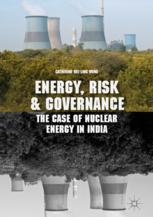

Most ebook files are in PDF format, so you can easily read them using various software such as Foxit Reader or directly on the Google Chrome browser.
Some ebook files are released by publishers in other formats such as .awz, .mobi, .epub, .fb2, etc. You may need to install specific software to read these formats on mobile/PC, such as Calibre.
Please read the tutorial at this link: https://ebookbell.com/faq
We offer FREE conversion to the popular formats you request; however, this may take some time. Therefore, right after payment, please email us, and we will try to provide the service as quickly as possible.
For some exceptional file formats or broken links (if any), please refrain from opening any disputes. Instead, email us first, and we will try to assist within a maximum of 6 hours.
EbookBell Team

4.1
80 reviewsThis book is about how energy, risk and governance are intertwined in the development of the nuclear industry in India and its relationship with the Indian public. It provides a rare insider-view of how the nuclear establishment thinks about risk, contrasted with public understandings of nuclear risk.
Energy, Risk and Governance presents a nuanced picture of why nuclear energy is still considered by some as a rational choice. This is in spite of its risks, the ambiguities in both expert and public risk perceptions, and the internal reflexivities that have emerged within the nuclear establishment as a result of the Fukushima-Daiichi disaster that is absent from public discourse. The insights in this book are not unique to India and similar observations can likely be made across the global nuclear industry.
Reflecting on what this means for risk governance in practice, this book proposes practical suggestions and some tools that practitioners in the nuclear industry can use in public engagement, risk communication and deliberation at various stages of decision-making.